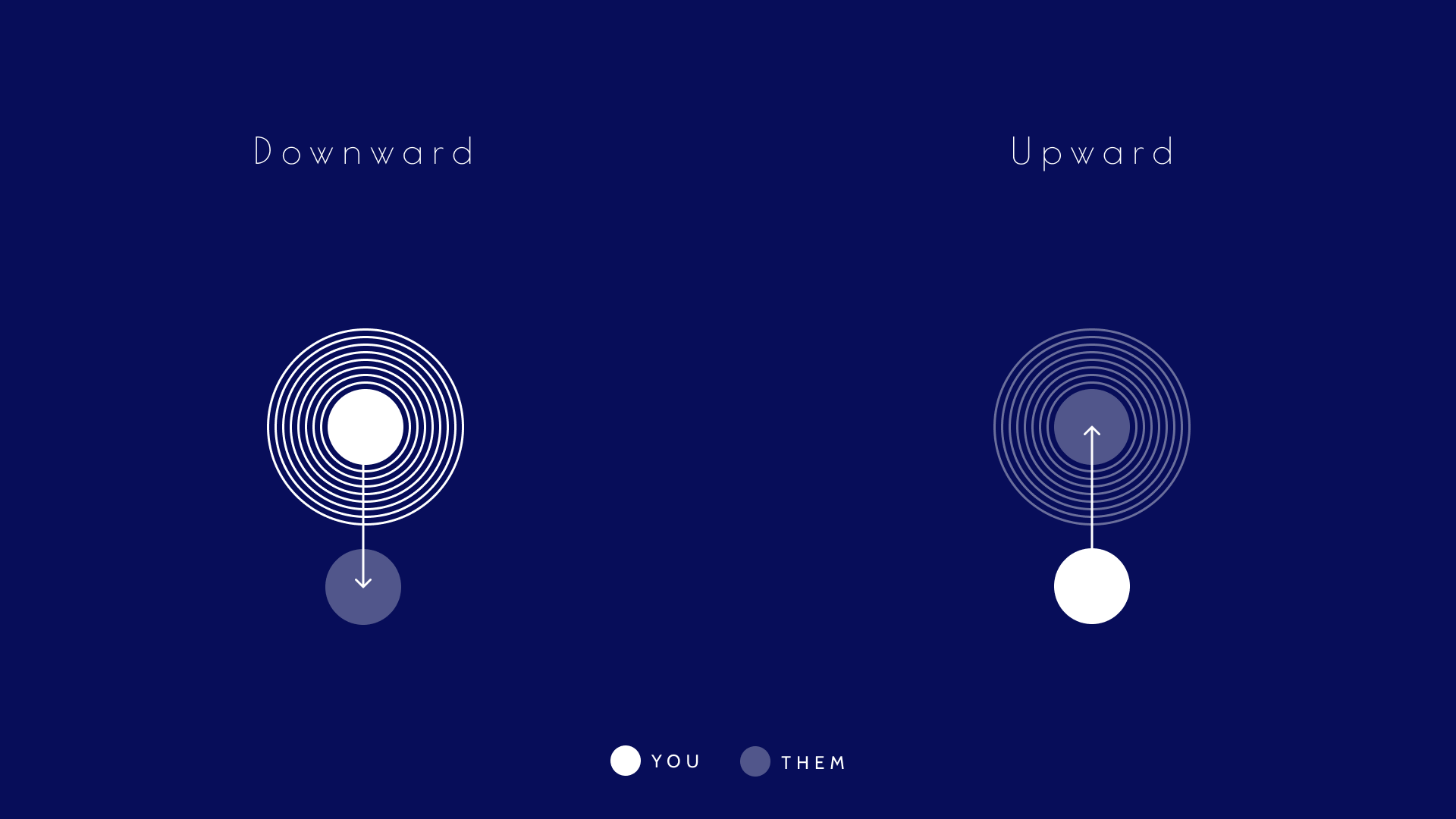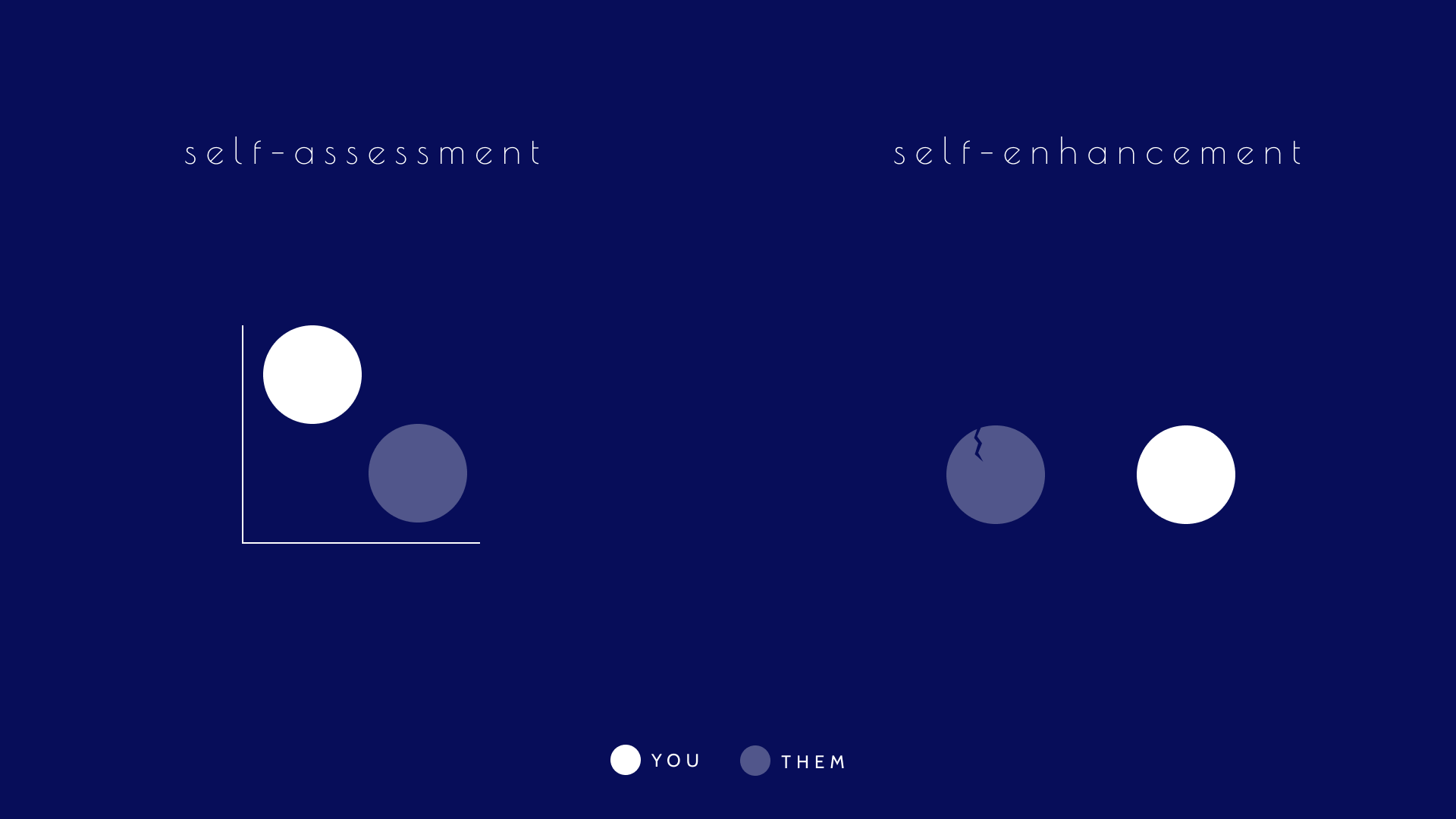Why We Can't Stop Comparing Ourselves to Others
I’m a recovering comparison addict. I joined a coding bootcamp in 2015, and by the end of it, I was more of a compulsive comparer than a developer. I would swing between feeling microscopically small, to feeling superior to people who were 1 step before me. I saw how detrimental this habit had become and I weaned myself off until I returned to “normal” levels.
However, I still catch myself engaging in comparisons. The other day, I noticed I was imagining that my colleague might be comparing me to another colleague. When I reflected on this afterward, I didn’t know which part was more ridiculous. The meta-ness of comparing myself to person C from the perspective of person B, or the fact that I imagined this would even cross his mind?
I’ve been wondering how much comparing ourselves to others is part of our social survival. Is it something you can avoid altogether, or do you just have to develop a healthy relationship with it? It turns out that humans have a fundamental need to evaluate themselves. But humans can’t define themselves in a vacuum, so they use others as a reference point. This need for self-evaluation is so prevalent that primates such as baboons do it too.
This area of research is largely thanks to the social psychologist Leon Festinger who came up with the Social Comparison theory. According to Festinger, there are 2 fundamental reasons why we self-evaluate:
- to reduce uncertainty in the area being compared
- to learn how to define ourselves
People tend to choose a person to compare against who is similar to them in some way. Most people believe choosing a similar target makes the self-evaluation more accurate. Although there are times where we actively downplay the similarities between us and our comparison subject, more on this later.
The 2 Types of Social Comparison
Downward comparison
This is when we compare ourselves to someone we consider to be worse off. This is a defensive strategy to improve our self-regard and/or to boost the ego. When we feel threatened we often opt for downward comparison.
Upward comparison
We want to gauge how far we have to go to get to the desired state, or what we need to do differently. Upward comparison can be a double edge sword however. On one hand, it can be a tool for self-improvement and thus improve self-esteem. On the other hand, it can lower self-regard and create a feeling of inferiority. Overall when we are in a positive mental space, we tend to favour upward comparison as a source of hope and motivation.

The 3 Motivations for Self-evaluation
Self-Assessment
This is based on the idea that people want to gain an accurate and objective evaluation of themselves. In my experience, this is the least emotionally charged of the motivations to compare ourselves.
Self-Enhancement
This is when people look for evidence to improve the way they see themselves. “They may interpret, distort, or ignore the information gained by social comparison to see themselves more positively and further their self-enhancement goals” (wikipedia).
To achieve self-enhancement, people may engage in either downward or upward comparison, depending on whichever they find more effective. The individual might also ignore the similarities between them and their comparison subject. “If a target’s similarity is seen as a threat, due to the target outperforming the individual on some dimension, the individual may downplay the similarity of the target to themselves.” (wikipedia)

Self-Verification
This is the motivation to seek information that confirms pre-existing beliefs about the self. We do this to achieve a sense of control and predictability. Self-verification is more about how we seek and interpret feedback than it is about social comparison.
So What Can We Do?
Identify the source
Usually when we compare ourselves to other people, there’s some core desire that we are seeking to fulfil. The feeling we are seeking in comparison motivated by self-assessment is usually tied to our core needs such as belonging, freedom, security, autonomy, or others.
The feeling we are seeking in a self-enhancement motivated comparison is still the same desire (eg: belonging) but this time, we get a momentary reassurance that we have fulfilled that core desire. We all have the same core desires, but there are 1 or 2 desires that are deeper in each person.
To find yours you can use Tara Brach‘s prompt (author of Radical Compassion):
“Ask yourself, what does my heart most long for?”
Alternatively, you can go through a list of human emotional needs and see which stirs up more feelings in your body. Once you know what your deepest desire is/are, you’ll see that most of your comparisons are motivated by the need to fulfill those desires. Even when comparing seemingly unrelated targets.
Awareness
I don’t know if it’s possible to stop comparing yourself to others and frankly the research has a long way to go. But awareness can be a great tool. As we are making a comparison, we can be curious. Are we doing a downward or upward comparison? are we motivated by self-enhancement or self-assessment? I find awareness to be a more natural tool in understanding and modulating our tendencies than controlling our behaviour with “shoulds”.
I’d love to hear your thoughts on comparing ourselves to others. Let me know on Twitter.